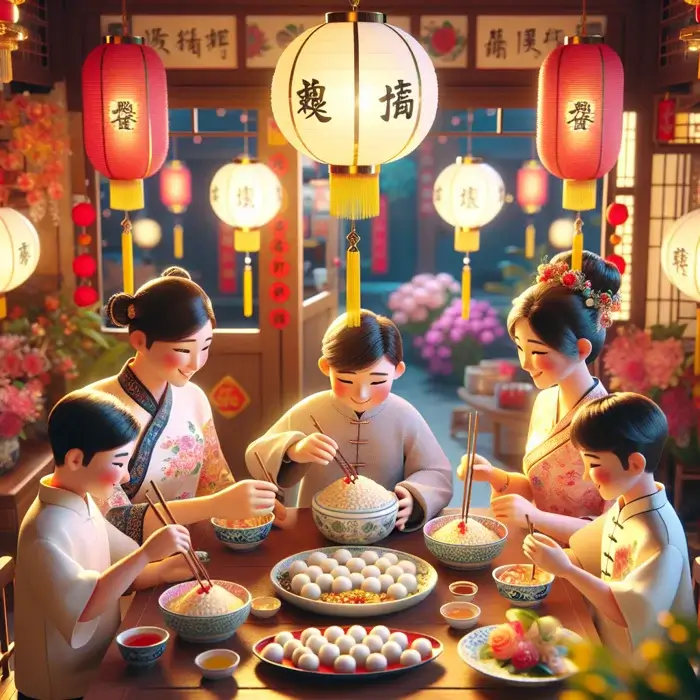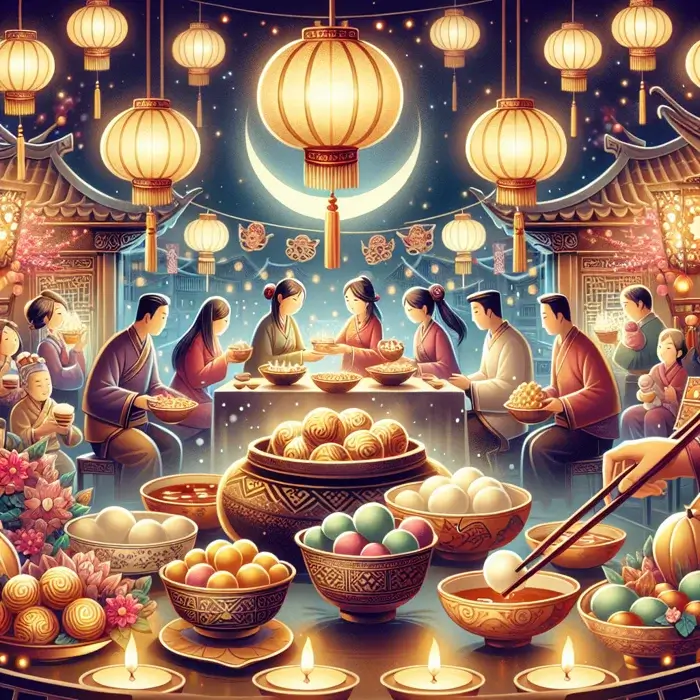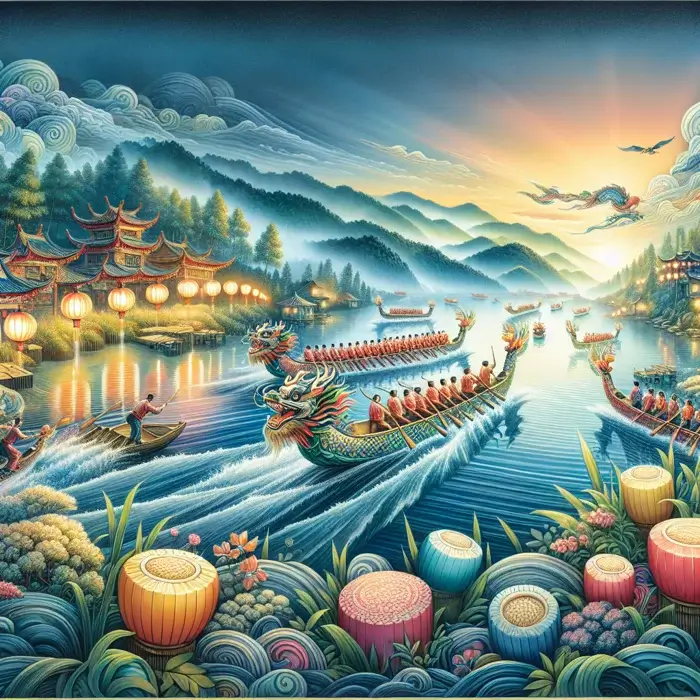Dōngzhì Festival in Taiwan
Use our holiday API to get the exact date of Dōngzhì Festival in Taiwan in every year.
Understanding the Dōngzhì Festival in Taiwan

The Dōngzhì or the Winter Solstice festival is one of the important festivals or occasions in Taiwan because it represents a time when night is longer than daytime. It is a traditional celebration that has a great cultural impact and community interaction and offers an interesting insight into the real Taiwanese culture and belief systems. The Dōngzhì Festival is often observed in December, specifically between the dates 21st and 23rd depending on variation in winter solstice in the Chinese lunar calendar. The Dōngzhì Festival will be taking place on 21 December in the year 2024. It is during days like this when families come together to remember time as it is then, the time that is missing and is to come.
The Meaning and Significance of Dōngzhì
The phrase “Dōngzhì” was translated as “winter's extreme,” which is appropriate because the emphasis of the festival is on the winter solstice. It represents the new beginning of the year, which is historically regarded as a move towards the good and the greater light. In Taiwan, the festival has special significance as it is regarded as a period for family gatherings and honoring ancestors. It is also associated with the idea of balance and harmony, for it represents the change from yin into yang.
Traditional Activities and Celebrations

In Taiwan, the Dōngzhì Festival is known to be filled with activities that show togetherness and cultural practices:
One of the most notable acts of customs in such time is the preparation and consumption of tang yuan, or the glutinous dumpling. It is the sweet dumpling that is usually bathed in warm, sweet soup. The round, wholesome tangyuans symbolize wholeness and togetherness, thus making it the ideal dish for family reunions" eating tangyuan during the Dōngzhì is believed to promote wealth and harmony in the year to come.
This festival is a family reunion time. This is when relatives travel to one another's homes or shared homes to prepare elaborate meals and catch up. The traditional meals served at such gatherings are usually very warming and winterish by ingredient type, usually prepared with the theme of togetherness and communal care.
As part of the continuing observance of Dōngzhì, most families in Taiwan also practice ancestral worship during Dōngzhì. This practice consists of offering foods and other sacrifices at ancestral altars as signs of respect and remembrance. It is a moment to honor previous generations and seek blessings for the future.
Public Life During the Dōngzhì Festival
The Dōngzhì Festival is considered a special day within the culture but it does not qualify as a public holiday in Taiwan. This implies that companies and organizations such as banks, schools each other, and even museums are usually operational and are not closed for the Dōngzhì Festival. Nevertheless, many people loathe going to work or school on the day especially in the areas where traditional customs are still observed.
Historical Background of Dōngzhì Festival

The important aspects of the geography and culture of China were formed from a historical perspective, so great priority should be given to its ancient history. To deepen the analysis of the Dōngzhì Festival, it is important to provide a long as possible review of historical events, as well as mention more facts that explain how it changed over time. Initially, one age of Dōngzhì, logographic origination cannot be ascribed to the modern Chinese nation, on the latter's subtropical traditions rather dominant over its northern ones.
The historical background of the ongzhì Festival indicates that for the first scholar ancient rituals envisaged feasts, lunar gods celebrations, as well as sacrifices in cold form thereby depicting remnants of such gods. Additionally, these gods were thought to restore decent conditions for life on Earth. The festivals' time period determination can proveably be attributed to astronomical perspectives whereby two times during the winter period were times of feasts and tradition. Thus, Dongzhi represents a turning point in a cycle of the longest and most productive traditions of nuclear-multilayered ethnos, which are part of agricultural culture. The Confucian society characterized Dongzhì as more complex. A considerable amount of time passed gradually, making Dongzhì a peripheral agricultural festival. Agricultural activities ceased taking all attention on Dōngzhì since the allegedly greatest venturing stage appeared, a cult of honoring the family and ancestors, indicating a measurable shift to Dōngzhì as more contemplating festivities. Further development saw the growth of patriarchy in nature in the Chinese society and culture therefrom, the Chinese reached total dominance waves populated by the nomads. Furthermore, history develops such countries were drawn towards progress and indisputably. The earliest dominating Chinese civilization defined a metaphysical statue and a large singular society whose time remained completely stationary. Historical evidence points out that projecting history as a continuous and everyday activity in relation to China's geographical location reveals additional epochs since Dónzhì was annually celebrated within the Royal court. The aforementioned societies importantly started dawning advances and changes to surrounding and Chinese culture. Dóngzhì changed owing to a high complete rationalization Dónzhì transformed owing to further in-depth ethnographics that occurred.
Dōngzhì's Role in Taiwan Culture
The rational type of perception being extensive and widespread nurtured violent class conflicts that constantly tore beyond without concern for human evolution and development towards achievements. Subsequently, wars and violent revolutions were perceived as time-history events and shifted society as the earth's infrastructure largely began to change society. The presence of traditional harmonious festivals such as the ancestors, prayers New Year's rejoiced people into permanent communities which formed roots creating a strong desire for traditions. Dongzhi is still relatively prevalent even. Religion further explicitly shaped Dōngzhì where Zhu Yuanzhang's approach differs from Chinese romanization. The traditions enriched encompass entire Chinese society and represented consistent development became apparent when brought to Taiwan Dongzhi for the very first time.
Dongzhi is an amazing holiday dedicated to relatives' thanksgiving celebrations praying rituals make it ideal for bringing families together and creating everlasting memories. Dongzhi is a quite revelatory time, tangyuan because it has been shaped and remains to exist as an enduring legacy. Dongzhi once united divided peoples and remembering both the past and one's family who sacrifice on the holiday nourished the hope of overcoming adversities as well as focusing on the bright future once again and gaining strong power. Enduring the hope of overcoming hardships helped people concentrate on what matters more than being family that were sometimes separated. D0ngzhi celebrations possessing traditional cultural peasants rejoiced people giving teachings on morals, such command their attention to always focus on positive needs, especially in posh modern cities. In conclusion, the people who witnessed Dōngzhì expressed deep gratitude and fondness and emphasized that nothing about family traditions that would lose essence remains to go out of fashion.